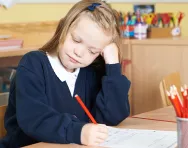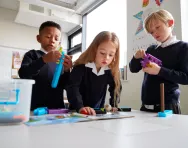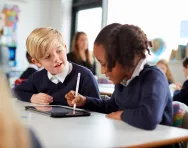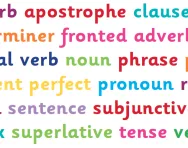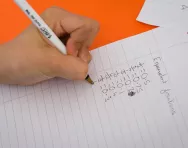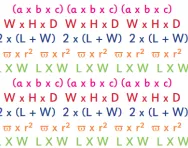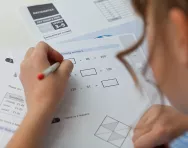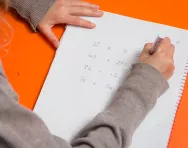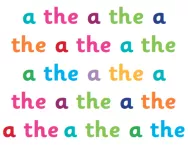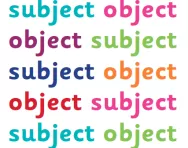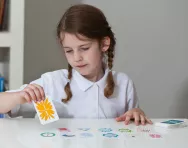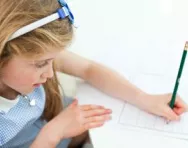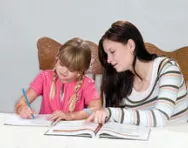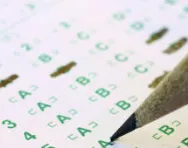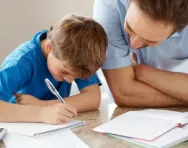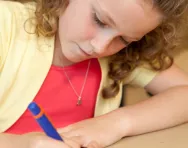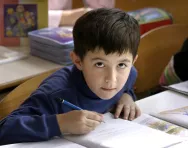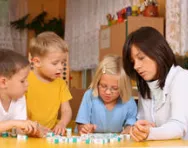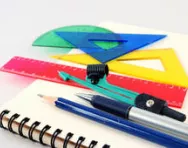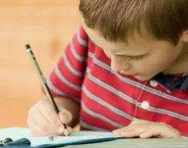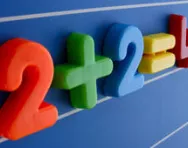Best brain-training apps for kids
Help your child develop essential skills such as problem-solving, critical thinking and spatial awareness with these brilliant brain games.
Access arrangements for primary school SATs
If your child has additional needs that could affect their SATs performance, they may be entitled to adjustments, known as ‘access arrangements’. We explain what can be arranged and how it might help your child.
Your free SATs downloads KS1 and KS2
Get your free SATs past papers, downloads and advice and information to help support your KS1 and KS2 child in the Y2 and Y6 tests here.
Supporting summer-born children at school
Your child’s birthdate could make a big difference to how they manage at primary school. We asked the experts about the potential impact, and how you can help your child thrive.
What are age-related expectations?
Is your child’s learning on track for their age? We explain how age-related expectations work in primary school.
Age-related expectations: KS2
Were age-related expectations mentioned on your child's report? We explain the targets children are asked to meet by the end of their primary school journey.
Best beginners’ algebra apps for kids
Help your child get to grips with the algebra concepts taught in primary school with apps that help to demystify mathematical equations.
Best grammar and punctuation apps for kids
The current National Curriculum puts a lot of emphasis on English grammar. We've rounded up the best apps to help your child get to grips with punctuation, parts of speech, tenses and more.
Handwriting in the National Curriculum
Handwriting may seem an outdated skill, but it’s still important in the primary school classroom. We take a look at what’s expected of our children.
Helping your primary school child with exam stress
With increasing numbers of children suffering the effects of test anxiety, how can you help your child keep their nerves under control?
The parent's guide to InCAS tests
Many primary-school pupils in Northern Ireland and Scotland are assessed every year using InCAS tests. We explain what’s involved.
Primary grammar glossary for parents
Do you know the difference between the subject and the subjunctive? Can you identify a relative clause or find a phrase? From active voice to verb tense, TheSchoolRun's primary-school grammar glossary offers a complete guide to all the grammatical concepts children are taught in EYFS, KS1 and KS2 English. As well as basic definitions we offer more detailed explanations, teachers' tips and examples for each grammar term.
Practical tips for preparing for SATs
Being well prepared for SATs will help your child feel more relaxed and confident, so how can you support them at home?
Teachers' tricks for KS2 maths
Is your child struggling with KS2 maths? Help them learn effectively and boost their number confidence in Year 3, 4, 5 and 6 with some useful calculation strategies and tips from primary teacher Phoebe Doyle.
Spelling in Year 5 and Year 6
Spelling is an important part of the Year 6 Grammar, punctuation and spelling test. Support your child's learning at the end of KS2 with Y5 and Y6 spelling worksheets and activities to help practise the spelling rules and patterns they're learning at school.
What is a formula?
Formulae help children to work out answers to mathematical problems. We explain which formulae your child will be taught in primary school, including how to calculate perimeter, area and volume, and how you can help your child feel confident using a formula in primary maths.
Changes to KS2 SATs in 2025: what parents need to know
If your child is in Y6 in 2025, read on for the most up-to-date SATs information for parents.
Primary-school grading system explained for parents
A new grading system to replace national curriculum levels was introduced into English primary schools in 2014. We explain what parents need to know about primary school assessment levels as well as KS1 and KS2 SATs and the new Reception Baseline Assessment.
What are definite and indefinite articles?
Definite (the) and indefinite (a, an) articles explained for primary school parents, with examples of how they will be taught in primary-school grammar lessons.
What are active and passive sentences?
The cat chased the mouse; the mouse was chased by the cat. Learn to identify active and passive voice in sentences and support your child's Year 6 grammar knowledge and understanding.
What are subject and object?
Subjects and objects in sentences, plus subject-verb agreement – primary-school grammar terms explained for parents, with examples.
SATs revision: your KS2 SATs maths helper
Some of the maths topics your child needs to know by the time they sit their SATs at the end of KS2 can appear daunting, but we suggest simple and effective ways to practise and revise at home.
What is the Y6 Grammar, Punctuation and Spelling test?
Year 6 children are all tested on their spelling, punctuation and grammar as part of the KS2 SATs. So what will your child need to know, and how can you help them brush up their skills? By Lucy Dimbylow.
KS2 SATs in 2015: what parents need to know
KS2 SATs have changed completely over the last few years. We explain the process for 2015 and what the new plans are for the Y6 assessments, including the new KS2 Grammar, punctuation and spelling test, following Lord Bew's review.
What are SATs?
No doubt you’ll have heard a lot of talk about SATs, but do you know what they involve or how you can help your child to prepare? Here’s the lowdown on everything you need to know.
Key Stage 2 SATs testing - what's involved?
Not sure what your 11 year old will be tested on in their SATs? Read on to find out more, along with examples of the questions they may come up against.
Start preparing for SATs today
Take the stress out of SATs by making honing your child’s skills as part of everyday home life.
Understanding SATs results
How are SATs marked, when will you see your child’s results and what do the marks mean? Moira Holden explains everything you need to know about the optional Y2 and compulsory Y6 SATs results.
How to use a SATs past paper: KS2 science
Although your child will no longer sit the KS2 SATs science test, you can still help them develop their skills by practising on a past paper together. Our teacher-tips guide explains how to administer the test at home.
How to use a SATs past paper: KS2 maths
Help your child get to grips with their KS2 maths SATs test format by completing past papers at home. Our parent's guide offers guidance on how to administer the test, from the equipment your child needs to what examiners are looking for to award top marks.
How to use a SATs past paper: KS2 English
Completing past papers is a great way to help your child prepare for their Year 6 SATs, but how should you use the tests at home? Read our guide, compiled by a primary-school teacher, to help your child get the most out of their reading and spelling practice for the KS2 English SATs test.
Your 9-month KS2 SATs preparation plan
Children starting Year 6 in September will face the prospect of KS2 SATs exams in maths and English in May. There's no need to panic, but you will want to avoid last-minute cramming. Moira Holden suggests a nine-month plan to help your child be the best they can be.
SATs revision: your KS2 SATs English helper
Boost your child's confidence before the Y6 English assessments with these handy tips and literacy activities that you and your child can work on together.
SATs advice: spelling strategies
During their time in primary school children learn to spell words accurately by a combination of approaches. Help boost your child's spelling confidence for SATs success with our strategies and suggestions.
SATs advice: speaking and listening
Speaking and listening enable children to problem-solve, exchange ideas, participate in decision-making and reflect on issues which matter to them. Through these interactions, a child's creativity and understanding are engaged and developed. Encourage your child to develop their speaking and listening skills at home to help them with their SATs literacy exams and to become successful communicators in their future lives.
SATs advice: measuring and estimating
The ability to measure and estimate are important skills in both numeracy and science learning across the Key Stages. Measuring weight, height, volume and thickness and a growing awareness of quantity will help your child's ability to estimate amounts and enable them to make comparisons between objects. Here’s how to develop your child’s skills outside the classroom to increase their confidence and help them get ahead in their SATs learning.
Top 10 ways to calm your child's fears about SATs
Give your child some all important “me time” during their SATs with our top tips on how to relax the mind and body and make for a healthier, happier learner!
Problem solving exercises for SATs
Problem solving is something we do constantly. Help your child develop their skills with our top activities to get them prepared for their SATs – and problem solving in everyday life.
SATs advice: maths problem-solving
Many of the questions in maths SATs papers for KS1 and KS2 involve problem-solving. Help develop your child's mathematical problem-solving skills at home with our guide to what they need to know in Y2 and Y6 and some practical activities you can try at home.
12 ways to give memory skills a boost and prepare for SATs
A good memory could be your child’s biggest asset when he’s preparing for SATs, tackling times tables or rehearsing for the school play. Here’s our guide to getting those synapses firing.

